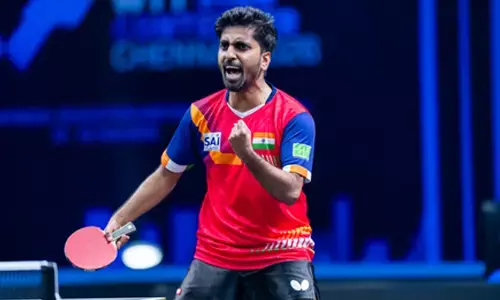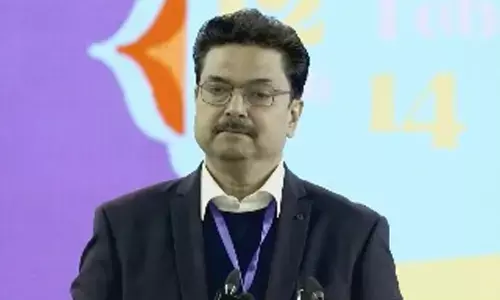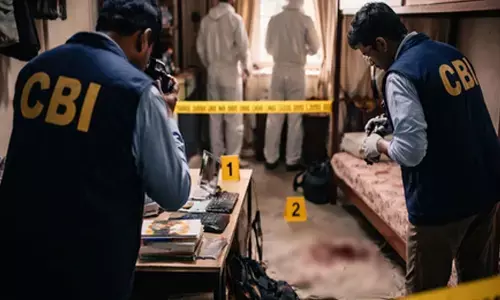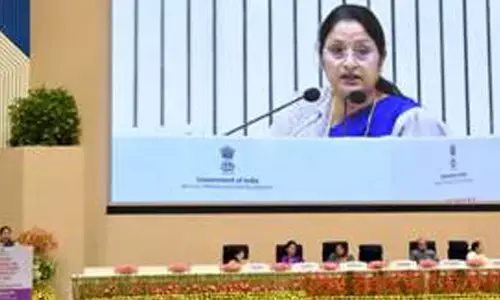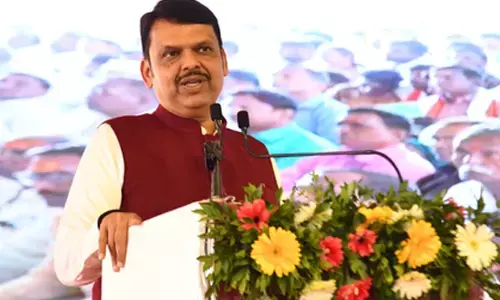MyVoice: Views of our readers 26th June 2022
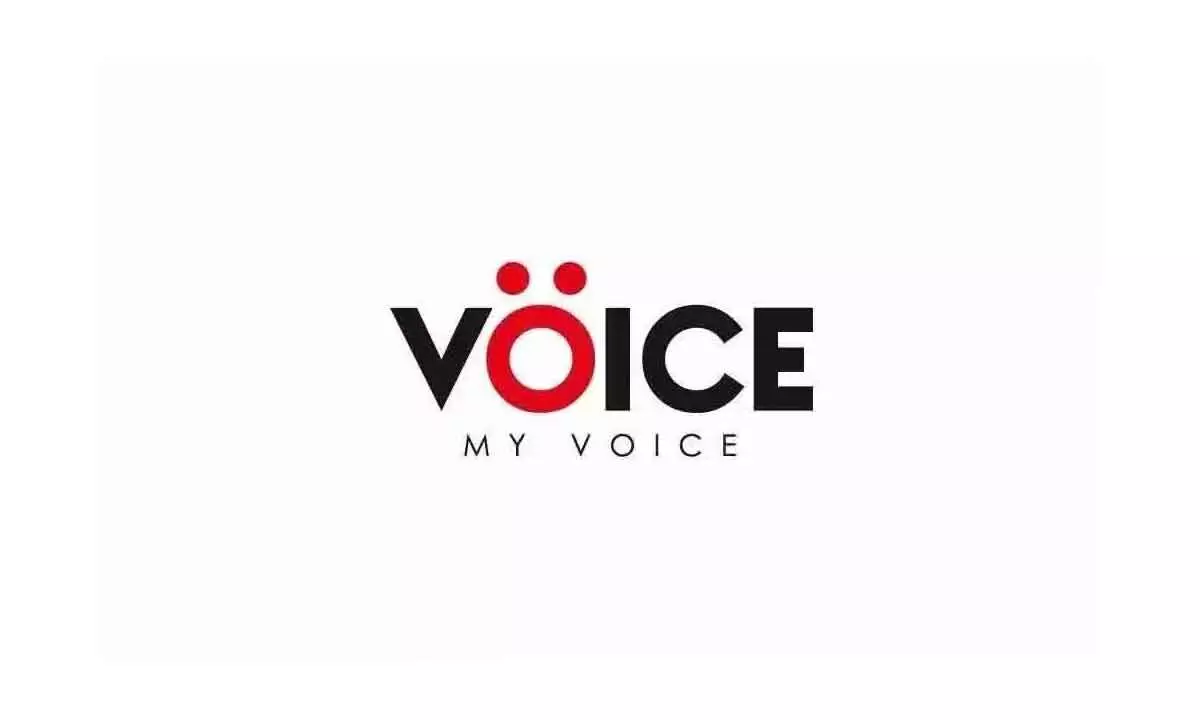
MyVoice: Views of our readers 26th June 2022
Uddhav pays the price for complacence
Apropos "Shiv Sena chief can't cry betrayal" (25 June). First thing first, like any other regional party, instead of taking care of the regional interest which they represent and their party, Shiv Sena chief focused more on his family and in process promoted his son who has little experience. He has not shown the maturity of late TN Chief Minister K Karunanidhi who allowed his son Stalin to learn and grow for over two decades before giving him ministerial responsibilities. No wonder neither 100 hundred year old INC or 80- year- old (in two avatars) could manage to break or disturb DMK.
However, if one has a deep understanding of BJP, they have always been the cause of breaking the opposition unity as it did in 1980 when they refused to disconnect themselves from RSS. The rest is history. BJP under stewardship of Atal Bihari Vajpayee, L K Advani and others always respected "Political Dharma" and later coalition dharma. The present day BJP has no respect for such dharma, be it coalition or political dharma. Basically from Congress mukt Bharat they have reached the stage of Opposition-mukt Bharat.
In Maharashtra BJP was occupying third place when INC was the dominant force. It therefore saw Shiv Sena founded by Balasaheb, a right party to use to build its own base. Both SS and BJP ideologically followed aggressive Hindutva policy. As long as Balasaheb was alive the party maintained a low profile in spite of occasional shadow boxing. Soon after Balasaheb passed away in 2012, it ceased the opportunity to occupy first position in Maharashtra politics.
With Congress facing anti-incumbency both in Centre and state, BJP managed to make more inroads using the shoulder of strong Shiv Sena at which point of time they never raised the issue of family party against Shiv Sena led by Uddhav Thackery. First time when BJP got to install its own CM in 2014, Uddhav and his party leaders didn't make any issue. It was only after completing their full term in 2019, Uddhav realised that BJP is using them to increase their own tally and insisted on a 50/50 formula which BJP backed out once they managed to get more seats than Shiv Sena.
If Uddhav had continued to play second fiddle to BJP, the party would have almost finished or would have become like SAD in Punjab (another family run party). From the day Shiv Sena changed its track to join dynamically opposite parties NCP and INC, BJP has been attempting to dethrone Shiv Sena -led MVA.
The rebel leader Eknath Shinde who is raising the issue of family must realise his son did manage to enter Parliament. Was this not an act of family first? Whenever and wherever BJP joined such a family-managed party they have always used and then made attempts to ease them out. BJD leader Naveen Patnaik realised this and thankfully being single he had no problem from family members and almost kept them away. The AP CM also realised this and cleverly kept away family members.
N Nagarajan, Hyderabad
II
The present situation in Shiv Sena, is the result of trust deficit and total inefficiency on the part of Chief Minister Uddhav Thackeray, and by his party MLAs under the leadership of Eknath Shinde to question the relevance and validity of Uddhav to continue as the leader of the party, having been part of MVA; which in for serious transition in Maharashtra.
Uddhav Thackeray can no longer play the victim card and shed tears alleging betrayal and backstabbing by Eknath Shinde and other MLAs who are in his camp now. The inconsistency on part of Uddhav is glaringly evident, not being in a clear mental state. He said he would resign the post as CM as power was not his priority, but he is yet to do so. His move to vacate the official residence of CM in Mumbai, gave some semblance of level headedness on his part.
But, others like Sanjay Raut and Sharad Pawar are influencing him, with their own agenda and political priorities that have led to further widen the rift between the CM and the rebel camp. The rebel camp is afraid to land in Mumbai as there is no guarantee for their lives as hate against them is deliberately propagated. What is vital and important now, for Uddhav Thackeray is to accept the reality of the situation and yield to it, rather than throwing in the gauntlet for an open confrontation with the rebel group, who are now the real and undisputed Shiv Sena in Maharashtra, about which all others are pretty well aware of.
K V Raghuram, Wayanad
III
At the outset, when alliances with ideologically incompatible parties cobbling together for the sake of power considerations brings an element of instability, Uddhav deviating from the legacy of Sena and joining hands with Congress and NCP was a Himalayan blunder and therefore calling betrayal by its own cadre after hell break loose now without looking inside how things went wrong in the past two years is laughable.
When MVA government within months after its formation in December 2019 began to show cracks due to Uddhav leaning towards NCP more and remaining aloof with Sena cadre, things started appearing gloomy. But for the Covid breakout, the fall of coalition was imminent in 2020 itself. Uddhav should thank the starts for saving his chair for two and half years even as Maha Vikas Aghadi (MVA) did everything to undermine Sena. Further, both Congress and NCP praising Uddhav very often for nothing at all proved hypocrisy is a politician's coat of armour even as Uddhav blinded with power clearly failed to gauge the extent of dissatisfaction brewing inside the party.
Now after the implosion by the rebel group shaking him, Uddhav making an emotional pitch to make a virtue out of necessity to step down while in the same breath crying out that he has been betrayed after much water has flown under the bridge simply has no basis. Going ahead by trying to reach out to the cadre even after the whole political process of aligning with Congress and NCP to keep BJP away from forming a government was perceptibly wrong reveals his failed leadership.
As is turning out that a split in legislature party is imminent placing the party's future in jeopardy, a million dollar question arises whether Uddhav be able to salvage the party after having enough damage to the theory and framework of Hindutva on which Sena stands by aligning with Congress and NCP for power? The fact that like politics has an uncanny way of creeping into several forbidden fields especially when it comes to power, Uddhav lured by Pawar and now left in the lurch need to reinvent not about NCP and Congress for power but to rebuild Sena on the ideology of its founder Bal Thackeray's singular theory 'Hindutva'.
K R Srinivasan, Secunderabad
IV
The BJP was slowly eroding the strength of the SS in Maharashtra. Therefore, it was in the interests of the SS to put an end to this. By insisting the CM should be from the SS, Uddhav Thackeray broke away from the alliance. Politics makes strange bedfellows as seen earlier when the BJP teamed up with the PDP. Equally startling was the NCP-INC-SS alliance. The biggest defect of a democracy is that once elected, the legislators are not answerable to the public for the next five years.
While presently the numbers are on the side of Eknath Shinde, have these rebels consulted their voters before taking this decision? While they may be strong men in their own areas, their decision will not have gone down well with the cadre of the party. By insisting that the next CM must be a Shiv Sainik, Uddhav Thackeray has set the cat among the pigeons. There is no way Devendra Fadnavis will agree to this. The final act has not yet been played out in Maharashtra.
Anthony Henriques, Mumbai
Needless mayhem over Agnipath
Nation had witnessed large scale arson in several states in the aftermath of announcement of Agnipath scheme for recruitment for short-term tenure of four years in the defence services that did not get registered meaningfully in the minds of youth; to view the scheme in the perspective of changing time and situation in the country as well as the world over.
The lawless protests of burning of public and private property that the country witnessed that was based on WhatsApp messages that emanated from coaching centres across the country asked the youth to gather at certain places and target trains. The incident of mayhem at Secunderabad railway station was immensely frightening, while state transport buses were damaged and torched; and goods laden trucks and trucks were set ablaze. Similar incidents took place in Bihar, UP, WB, Haryana and J&K against Agnipath in an unprecedented manner.
The common man continues to entertain the notion of landing in a job to lead an unbothered life for 20 or 25 years, with terminal benefits and pension, is no longer valid as state governments and central establishments are feeling the pinch of financial burden, and are not filling up vacancies for want of resources. That is the reason why the Centre is insisting on self-employment, extending bank loans to the willing candidates to start their own business establishments and ventures that will prove generating more employment chances.
The Defence forces in the country have already announced recruitment procedures in Agnipath as IAF and Indian Navy will begin recruiting candidates from July 2022. The detractors of Agnipath scheme like Congress, AIMIM, TMC, BSP and SP did not understand the essence behind the programme, while continuing with the usual pattern of tirade against the Centre over the Agnipath scheme. They did not know that many countries are into this practice like China, Korea, Israel, Germany, and the UK among others. The country needs a fighting force that is its prime to accomplish tasks on the warfront, in which age is the essence.
S Lakshmi, Hyderabad
Adivasi as President will just be an act of symbolism
Apropos, "Droupadi Murmu files nomination for Prez", The Hans India, June 25. Droupadi Murmu is all set to be the next President of India, given the numbers that the ruling party commands to get her elected against Yashwant Sinha. The BJP can be lauded for its political strategies and unmistakable symbolism, it is necessary to go beyond the obvious.
In the BJP, symbolism has come to acquire a life of its own, it's become a spectacle. The prime minister washing the feet of sewage cleaners took the party's pro-Dalit stand to a new high. Which prime minister had done anything like this, many asked. It would have been more substantive if the government had taken steps to eradicate the practice of manual scavenging. Whether Kovind or Murmu, there comes a point at which questions must be raised beyond the symbolism.
Murmu's Adivasi background is made much of. The use of the Scheduled Tribe card appears more cynical than symbolic at this stage because governments, both at the Centre and in states, have steadfastly refused to listen to the grievances of adivasis across central India as they pushed mega projects. The socio-economic condition of tribal communities is abysmal and steadily worsening, with reports showing that the percentage of poor has increased in the last decade. Eviction from their natural habitats, displacement and distress migration are the less-heard themes in the Murmu story.
Ideally, the symbolism of selecting an Adivasi woman for Rashtrapati Bhavan should have elicited hope for better times, but the art of symbolism as an end in itself demonstrated by this government evokes cynicism. Congratulations to Murmu, but don't hold your breath for substantive improvements in the lives of India's 84 million adivasis, who constitute nearly 8.5 per cent of her population.
N Sadhasiva Reddy, Bengaluru
Caesarian delivery cases are unnecessarily criticised
The softest target in the country and the easiest to demonise has to be the medical profession. Caesarian Sections are the commonest means to do this. The political-bureaucratic pressure seems to have come hard on the Caesarian sections. A news item (THI dated 21st June) mentions the Collector proclaiming that thanks to the measures initiated by them, the Caesarian section rates have come down from 98 per cent to 90 per cent in private hospitals and from 77 per cent to 67 per cent in government hospitals. How ethical is it for the governments to concentrate on the technical aspects of individual surgeries when clearly, they are not qualified to do so? This, instead of focusing on the more important duty of providing health care access to all.
Without discounting commercial motives, most debates on Caesarian Section rates show a tunnel-vision. Some government teaching hospitals, where commercial motives do not perhaps stick, show CS rates of almost 80 per cent and up. Caesarian Section is rising the world over: China (47 per cent), Italy (36 per cent), Australia (33 per cent), United States of America (32.2 per cent), UK (26 per cent), and New Zealand (26 per cent) are some examples. Also, the proportion of Caesarian Sections is increasing every year in all countries. Is India an exception (at 17.2 per cent in 2015–16)?
Yes, because it best meets the much quoted 10 per cent-15 per cent WHO criteria of an 'ideal' CS rate where less than 10 per cent implies that the health standards for the country are poor and more than 15 per cent implies unnecessary surgeries with risks outweighing benefits. However, these figures reflect something else too. Despite the 'obviously evident' high Caesarian Sections all around in the country, an overall figure of 17 per cent points to pathetic health delivery standards of the country, averaging the country's figure to such a respectable figure. It actually reflects poor healthcare access across the country. The governments should be highly reflecting about its own performance over decades based on these numbers.
The financial, legal, and technical reasons for CS increases are manifold: Increasing maternal age; increased numbers of multiple births; higher rates of obesity and Diabetes; medical-led view of pregnancy and birth leading to higher rates of interventions; fear of birth and labour pain; concerns about genital modifications after vaginal delivery; fear of medical litigation; low tolerance of anything less than the perfect birth outcome; Polycystic Ovarian Disease (PCOD) growing in epidemic proportions; infertility treatments leading to multiple gestations; increased incidence of big babies; increased incidence of abnormal pelvises in mothers; and so on. Cultural and horoscope considerations play an important role in countries like India and China.
Due to the complexity of all these scenarios and the interconnected factors, interventions to reduce unnecessary CS have only shown moderate success to date. The World Health Organisation Statement, reiterated by the Indian Obstetrician's body FOGSI, emphasises that every effort should be to provide Caesarean Sections to women in need, rather than striving to achieve a specific rate. Even if charges for normal vaginal delivery become equal to Caesarian Section charges (as some suggest as a solution), it is highly doubtful that such a strategy would reduce the CS surgeries. The debate requires more nuance and not bias on the part of our intellectuals.
Dr Pingali Gopal, Warangal



